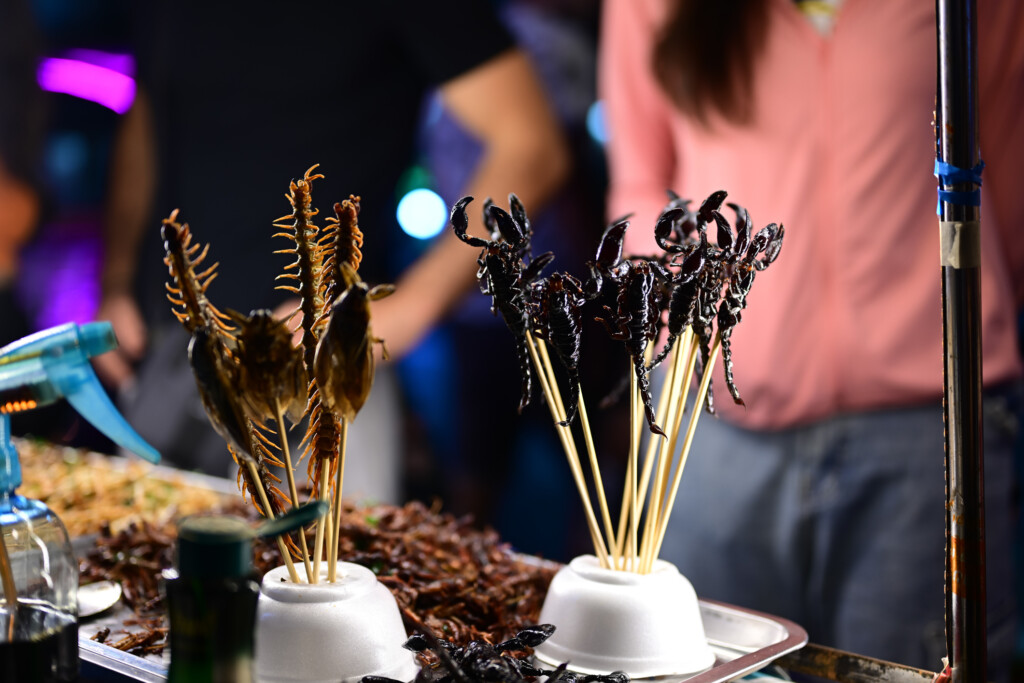A study led by UT Southwestern researchers reveals that a traditional Chinese medicine with extracts from several insects reduces the chances of cardiac death and other adverse conditions for heart attack victims.
According to UTSW, it is one of the first large scale Western-style medical studies of traditional Chinese medicine and the first such trial for this medicine, with more than 3,000 patients. Research revealed the promise of tongxinluo, which means “to open the network of the heart.” The pill, which has long been available in Chinese markets and pharmacies, is a centuries-old concoction made from seven herbs as well as cockroach, scorpion, cicada, centipede, and leech. It has traditionally been used to treat those who have had heart attacks or strokes.
Based on promising results in animal models, the Chinese State Food and Drug Administration of China approved its use for angina pectoris and stroke in 1996. However, the treatment had never been studied in a randomized, double-blind, placebo-controlled clinical trial, which is required for approved medicines in the U.S. and Europe. Dr. Eric Peterson led the study. Peterson is a professor of internal medicine, vice provost, and senior associate dean for clinical research at UT Southwestern.
His journey to the project began when he worked at Duke Clinical Research Institute, where he collaborated with Chinese researchers while running clinical trials worldwide. A colleague approached him about setting up a trial to test tongxinluo, and the results were published this year.
“Every once in a while, these treatments have real pharmaceutical or biologic effects,” Peterson says. The study, published in the Journal of the American Medical Association, is one of those times, it seems.
Between 2019 and 2020, researchers worked with 3,777 patients at 124 clinical centers in China who experienced the most severe form of heart attack, where a blood clot blocks a major blood vessel supplying the heart. The patients had the clot removed and received standard treatment over the year, like taking daily aspirin or beta blockers. Half of the patients were also given tongxinluo, while the other half was given a placebo made to look, smell, and taste like traditional Chinese medicine.
Researchers tracked the patients’ adverse cardiac events like cardiac death, stroke, heart attacks, and other emergency procedures for the following year. The adverse events were 30 percent lower in the group who took the traditional remedy at 30 days, and the benefits continued for a year. Patients who received tongxinluo had a 25 percent decreased risk of cardiac death and suffered no side effects.
The research has flipped the normal discovery process on its head. Scientists know the pill works, but they don’t yet know how it works or which components are reducing adverse cardiac events. “Normally, when we develop drugs, we have a chemical and test to see if it has mechanistic effects. Then, we test in larger clinical trials to find out if the drug is safe and effective in people. In this case, we’re going the opposite direction,” Peterson says. “We tested a drug and found it to be highly effective, and now we’re trying to understand the mechanism and actual chemical that was affected.”
In China, the insects are procured from lab-controlled farms designed to mass produce them for traditional medicines. It is already available in around 10 other countries, including Canada.
Peterson says the next step will be to reverse engineer the medicine and isolate variables to determine whether it is the scorpion, leech, centipede, herbs, or some combination. Additional trials with different patient populations will need to take place in the U.S. to gain approval from the Food and Drug Administration.
Peterson collaborated with Dr. Ying Xian, an associate professor of neurology in the Peter O’Donnell Jr. School of Public Health at UTSW, and colleagues at several Chinese universities and hospitals. “Many drugs have failed to achieve effects as impressive as this traditional Chinese medicine,” Xian says.
What could this process mean for the future of traditional medicines? Peterson says the process helped him better understand the market for Chinese home remedies, which make scientific claims about everything from COVID-19 to aging. “It may all be mythical, but if you suspend belief for a second and say, ‘Who knows,’ they’re willing to do more studies. I think there’s a big opportunity here to find a lot of stuff that we hadn’t heard of.”
Author







